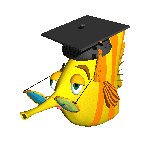

"A new age demands a new paradigm!"
-Walter McKenzie
|
Curriculum Mapping presented by Walter McKenzie The One and Only Surfaquarium http://surfaquarium.com walter@surfaquarium.com
|
|||||
As we head into the holidays, consider giving a gift of the Digital Dozen Newsletter to someone who would truly take advantage of its weekly rich resources - YOU! One $25.00 payment gets you all the back issues since September plus the rest of the year in your email box every weekend - 40 issues in all! Pay online by check or credit card - what could be easier? Go to http://surfaquarium.com/DD/ and subscribe today!
Make a new year's resolution to do something for yourself - join a Surfaquarium Digital Community of Practice (CoP)! CoPs are available in multiple intelligences integration, unit development, virtual field trips and webquest design. Courses are only $50 - $100 by check or credit card. Go to http://surfaquarium.com/CoP/ to learn more and treat yourself to something you can make and take right into your classroom!!
For the February 2005 edition of the newsletter, I will publish the second annual list of Top Online Educators. I am not looking for the top gurus or corporate representatives. This recognition is intended to be from educators on the front lines of education to ten of their own best and brightest. I am seeking out those educators who have done on outstanding job of furthering education online: through a teacher-oriented web site, student-oriented online project, or through the online publication of work that advances the profession in a significant way. You may see last year's honorees at http://surfaquarium.com/TOP10/.
Beginning today I am accepting nominations to be considered for the 2005 Top Ten Online Educators! To nominate someone, please email me at walter@surfaquarium.com with the subject line TOP ONLINE EDUCATOR NOMINATION and a paragraph naming
- the person
- the URL(s) they are responsible for, and
- the ways in which their work has improved the quality of education, either for you personally or for profession as a whole
I look forward to receiving your nominations!
In the last year, the Web resources on Curriculum Mapping have changed drastically. Prompted by the requests you have sent in to update this issue, I worked overtime to get this out to you at year's end. The emphasis here is on mapping curriculum and developing instruction which builds on student understandings and assesses what it teaches. I've included a link on Backward's Design which emphasizes the "big picture" orientation of both Jacobs and Wiggins & McTighe. I hope you'll find this collection useful as we head into the new year!
ALPS: Teaching for Understanding -
http://learnweb.harvard.edu/alps/bigideas/q4.cfmActive Learning Practices for Schools (ALPS) emphasizes building sound instruction through innovative practices. You have to register (it's free) so that you can keep track of the units you design (they are archived on their site).
Concept Mapping and Curriculum Design -
http://www.utc.edu/Administration/WalkerTeachingResourceCenter/FacultyDevelopment/
ConceptMapping/index.htmlThe University of Tennessee at Chattanooga presents this discussion of how concept mapping impacts on the design of curricula. This is vitally important to Jacobs' model, as concepts serve as the large, big-picture ideas under which all strands of the curriculum are mapped.
Creating a Timely Curriculum: A Conversation with Heidi Hayes Jacobs -
http://www.ascd.org/publications/ed_lead/200312/perkinsgough.htmlDeborah Perkins-Gough interviews Jacobs for the January 2004 issue of Educational Leadership, covering hard questions on the implications for curriculum mapping in science, social studies, math, the arts, and the language arts.
Integrating Literature and the Arts into Technology-Based Instruction:A New Unit Model for Educators -
http://surfaquarium.com/new_unit_model.pdfThis article from the August 2004 Library Media Connection showcases the Jacobs' approach to curriculum integration with a strong conceptual tie-in and activities which can be easily mapped from objective to assessment. Based on the 2004 book Standards-based Lessons for Tech-Savvy Students: A Multiple Intelligences Approach.Interdisciplinary Learning in Your Classroom - http://www.thirteen.org/edonline/concept2class/interdisciplinary/index.html
WNET strikes again with an excellent online workshop on integration developed under the guiding hand of Heidi Hayes-Jacobs. See also Assessment, Evaluation and Curriculum Redesign at http://www.thirteen.org/edonline/concept2class/month7/index.html
Mapping the Big Picture: Integrating Curriculum & Assessment K-12 -
http://www.ascd.org/publications/books/197135/ASCD offered these excerpts with the publication of Jacobs' book, Mapping the Big Picture in 1998. See her new book "Getting Results with Curriculum Mapping " just out November 2004 at http://shop.ascd.org/productdisplay.cfm?productid=104011.
Minneapolis Public Schools Curriculum Mapping -
http://maps.mpls.k12.mn.us/This page is designed specifically for mapping in the middle grades, and includes a good sized collection of examples of curriculum mapping for you to consider, covering K-5, K-8 and high school units, as well.
NCREL Curriculum Mapping Web Site - http://currmap.ncrel.org/default.htm
The North Central Regional Educational Laboratory brings together all the tools needed for your school district to conduct curriculum mapping with the support of their experts. This site is a must see!
Spotsylvania County Public Schools Curriculum Maps - http://205.174.118.254/cmaps/
Spotsylvania, Virginia does a nice job of sticking to the intent of Jacobs' vision for curriculum maps; detailed and sequenced horizontally and vertically. Maps for 2004-2005 being updated to 9 week format, but the original 1998 maps are all here.
What is Backward Design? -
http://www.pgcps.pg.k12.md.us/~croom/what_is_backward_design.htmThe Prince Georges County, Maryland Public Schools offers this online tutorial in the process of backwards design and its "big picture" approach which links it with Jacobs' model of curriculum mapping.
Next Month's ITN Topic: "Iditarod 2005 "
This newsletter may be forwarded or copied provided the header and signature information remain intact. Show a colleague what you have found in the Innovative Teaching Newsletter!
©2004 Walter McKenzie



